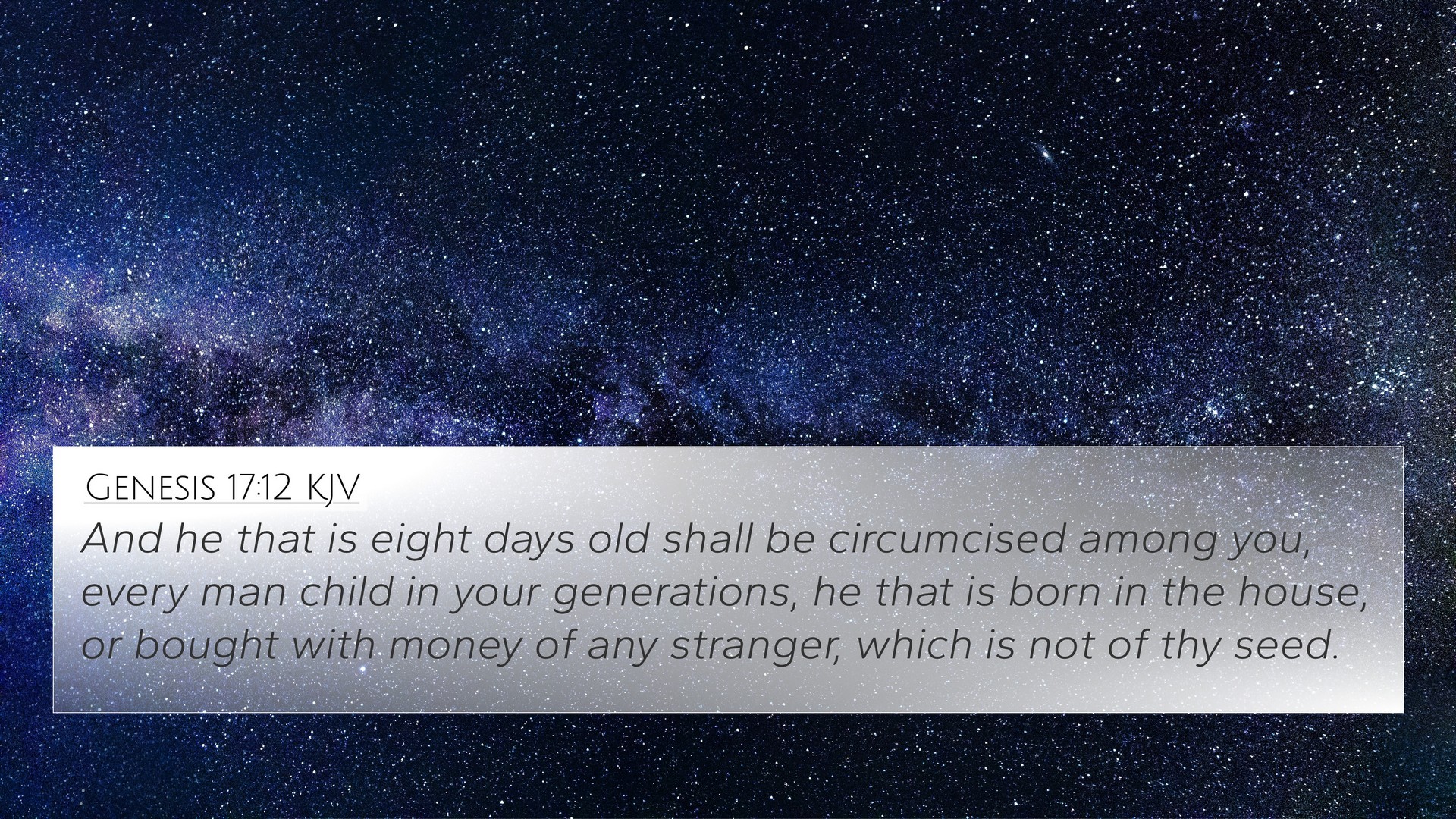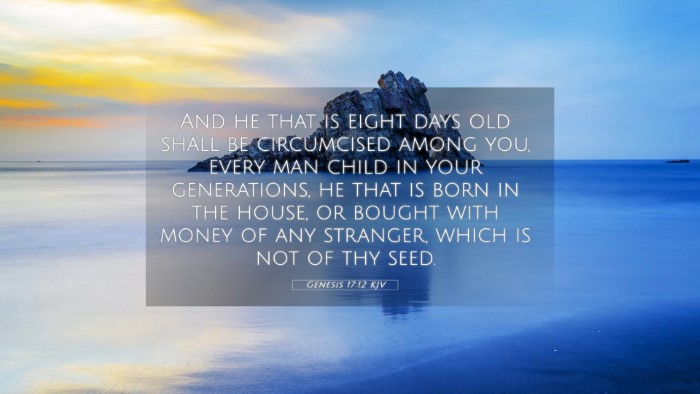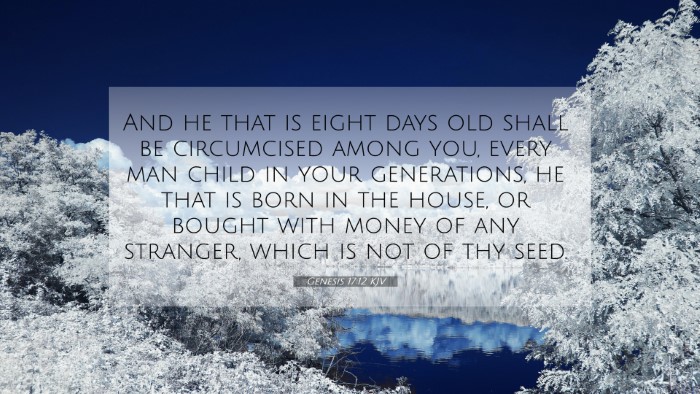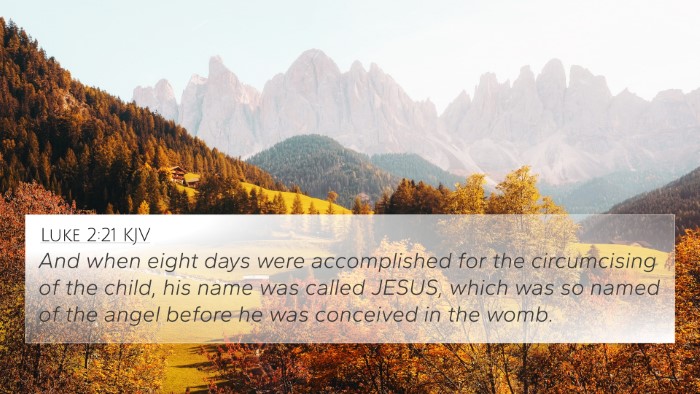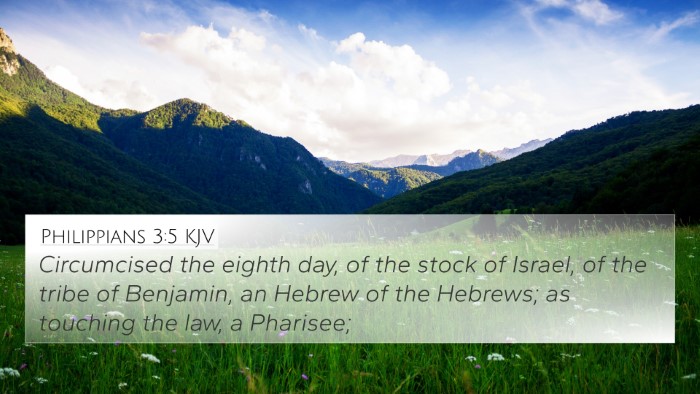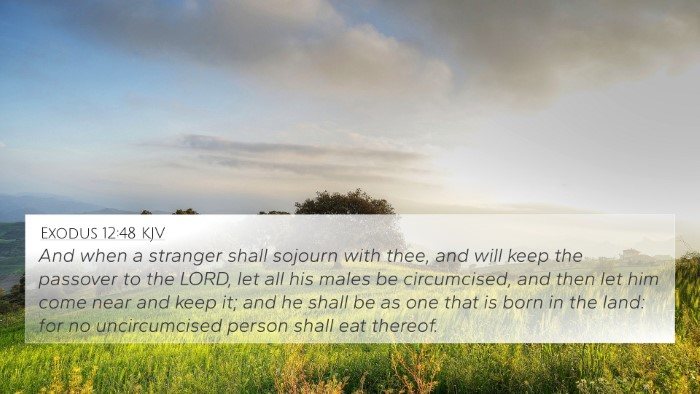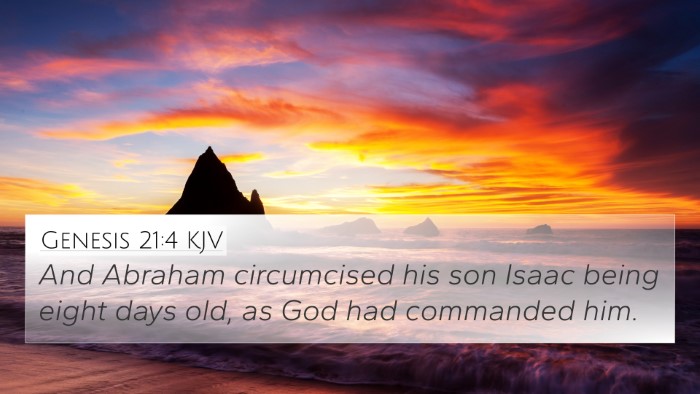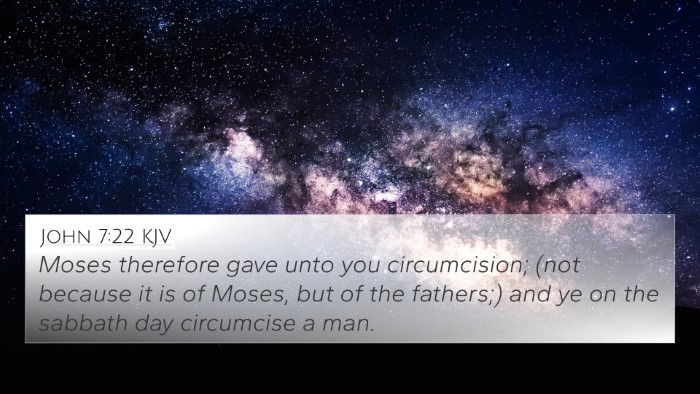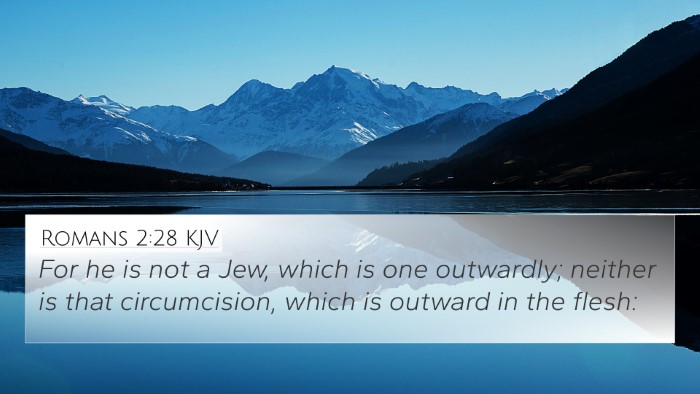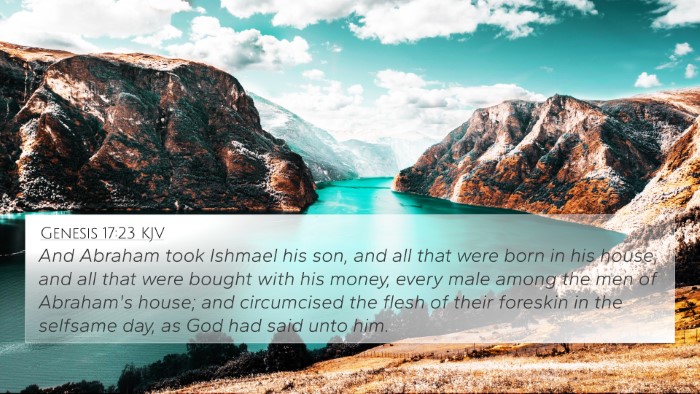Understanding Genesis 17:12
Genesis 17:12 states:
"And he that is eight days old shall be circumcised among you, every man child in your generations, he that is born in the house, or bought with money of any stranger, which is not of thy seed."
This verse is integral as it introduces the covenant of circumcision that God establishes with Abraham, signaling a physical sign of the covenant between God and His chosen people. The age specified — eight days — holds significance, symbolizing a period of growth and purity before entering into a sacred covenant with the Lord.
Insights from Commentaries
-
Matthew Henry’s Commentary:
Matthew Henry emphasizes the importance of the eight days, suggesting that this age represents the time when the child is sufficiently developed to partake in the covenant. Henry interprets circumcision as a ritual that not only symbolizes purity but also serves as a mark of identity for God’s people, distinguishing them from other nations.
-
Albert Barnes’ Notes:
Barnes notes that this directive was to extend beyond Abraham’s immediate family to include any child born or purchased among Abraham’s household. This universal aspect of the commandment represents the inclusion of all who are associated with Abraham, symbolizing grace’s reach beyond mere lineage.
-
Adam Clarke’s Commentary:
Adam Clarke reflects on the social aspects tied to this command. He highlights how circumcision served not just as a religious act but also held social importance, marking a child’s belonging to the covenant community. Clarke points out that this creation of identity was essential in the developmental history of the Israelites as a separated clan devoted to God.
Bible Cross-References
Connecting Genesis 17:12 with other scripture helps illuminate its meaning. Here are notable cross-references:
- Leviticus 12:3 - Discusses the commandment of circumcision and its timing.
- Luke 1:59 - Refers to the Jewish customs regarding circumcision on the eighth day.
- John 7:22 - Mentions the practice of circumcision as part of the Law of Moses.
- Romans 4:11 - Discusses circumcision as a sign of faith.
- Acts 15:1-2 - Highlights debates in the early Church regarding the necessity of circumcision.
- Genesis 17:9-10 - The preceding verses establish the covenant including circumcision.
- Colossians 2:11 - Reflects on the spiritual significance of circumcision in the New Testament context.
Thematic Connections
Genesis 17:12 serves as a focal point in understanding themes related to covenant, ritual purity, and identity among God’s people. The following themes are explored through cross-referencing:
- Covenant Relationships: The act of circumcision is a permanent reminder of God’s promises to His people.
- Identity of God's People: It is crucial in establishing the Israelites' distinct identity among surrounding nations.
- Obedience to God's Commands: Following this directive is portrayed as an act of obedience that comes with spiritual and social implications.
Conclusion
The understanding of Genesis 17:12 extends beyond its surface meaning, inviting a deeper look into the implications of God's covenant with Abraham and his descendants. Through the lens of historical and theological study, the practice of circumcision emerges not only as a physical rite but also as a significant element that connects believers across both the Old and New Testament narratives. For thorough Bible study, utilizing tools for Bible cross-referencing can enhance your understanding of how interconnected Biblical texts convey deeper truths about God’s relationship with His people.
